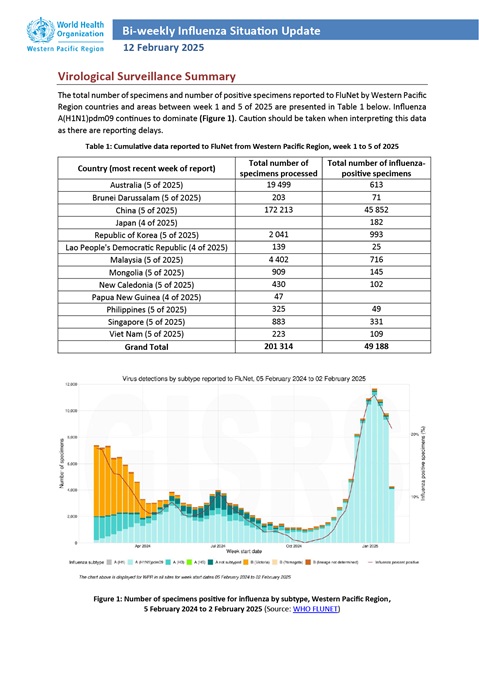Bi-weekly Influenza Situation: 21 May 2025
Situation report
22 May 2025
| Publication

Overview
Seasonal influenza is an acute respiratory infection caused by influenza viruses which circulate in all parts of the world. Most people recover from fever and other symptoms within a week without requiring medical attention. However, influenza can cause severe illness or death, particularly among high risk groups including the very young, the elderly, pregnant women, health workers and those with serious medical conditions.
Given the risk to vulnerable groups and the potential for seasonal influenza viruses to cause outbreaks and epidemics, WHO's Health Emergencies Programme monitors and assesses the spread of these viruses on an ongoing basis.
Influenza surveillance in the Western Pacific Region is based on outpatient and inpatient indicator-based surveillance (IBS) systems, as well as event-based surveillance. Case definitions, population groups and data formats differ among countries. This influenza surveillance summary includes countries and areas where routine IBS is conducted, and information is available.
Between 1 January – 20 December 2023 over 250 000 confirmed cases were reported from 14 countries and areas in the region compared to over 74 000 confirmed cases in the same period in the same number of countries and areas in the region in 2022.
WHO in the Western Pacific monitors and assesses the spread of these viruses on an ongoing basis publishing a bi-weekly summary of the situation in the Region.
WHO Team
Regional Emergencies Programme and Division of Health Security and Emergencies (DSE),
WHO Western Pacific
Number of pages
13




